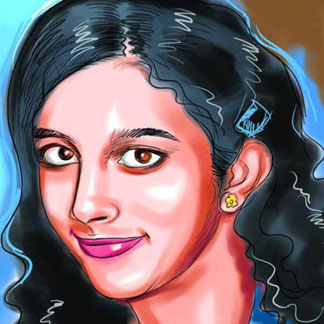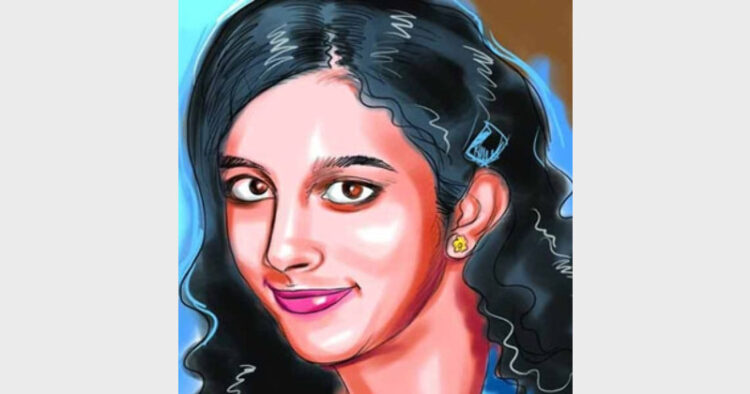Special CBI court sentences Arushi”s murderer parents
Dr Rajesh and Nupur Talwar with life term on November 26
Dr Anjali Deshpande
 The recent verdict of special CBI court in much publicised Arushi-Hemraj murder case has come as an eye opener for many like us. Poor Arushi was killed by her parents and since five years the police, CBI and other agencies were trying to punish the guilty in this case and finally the verdict was delivered. Now it is left to social scientists and thinkers to analyse this verdict vis-à-vis its impact on the social psyche.
The recent verdict of special CBI court in much publicised Arushi-Hemraj murder case has come as an eye opener for many like us. Poor Arushi was killed by her parents and since five years the police, CBI and other agencies were trying to punish the guilty in this case and finally the verdict was delivered. Now it is left to social scientists and thinkers to analyse this verdict vis-à-vis its impact on the social psyche.
Talwar family comes from higher middle class. They are educated. Arushi was their only daughter. Her parents were working as doctors. The social scientists have classified families on the basis of their structure and work. In the structural families relations are built up between various individuals on the reproduction and rearing of children under one roof. In the working families, the parents are expected to look after the social, emotional, expressional needs, fulfillment of their requirements. The family system is one institution that establishes and strengthens collateral and healthy relationship between the individual and the society.
Talwars case involve both the families as such it is pertinent here to think for both. Arushi was just a teenage girl passing through adolescence. Naturally, she is curious to know new experiences in her changing life. The sociologists call this phase as period of stress and storms. The adolescents need elderly support in this period when their emotions, directions, understanding etc. are stabilised. It is the duty of the parents to guide them how the natural instincts and discrimination can be coordinated within the limit of the social rules and regulations.
The parents need to ponder over how their wards spend time in their absence; how they think; do they enjoy freedom of expression in the family, what is their concept of development; whether they discussed this with them; how they spend time with their children; do they follow the values and samskars; whether they have given value-based samskars to their children; and so on. Spending time with children is not only watching TV with them. The parents are expected to discuss certain issues and interact with the children.
The parents should talk to them about physical changes they are experiencing with growing age. At least the doctor parents are expected to do this. Only fulfilling their financial and material needs does not provide answer to all questions of the children. How ‘the only material progress’ attitude is spoiling the future of our next generation is well depicted by this Arushi-Hemraj case.
Hemraj, about 45, was a Nepali working of 24 hours in the house of Talwars. To keep such servants is the fashion and compulsion of families like Talwars. There are good number of people who work full-time in such houses. They do not have enough avenues to earn livelihood in their own countries and growing urbanisation in our country has made this practice a necessary evil and a prestige issue also.
Such persons whose income is not even 10 per cent of their employers and who spends 24 hours in his house observing his employer enjoying all sorts of material pleasure. Such persons have more need for values and character. Family can give these values which last lifelong. If family is stable, parents are cultured they can inject and imbibe good lasting moral values. It needs some moral, religious and spiritual basis also. In view of such an arrangement we can save our society from such incidents.
Much information about Arushi and her parents can be had from newspaper reports but no such information is available about Hemraj. Who is he? What is his family background? Who were his friends? What was his behaviour at Talwar’s house or prior to his coming to their house? When and how he meets his family, if he has one? Answers to these questions are necessary to analyse Hemraj’s personality.
Both the families have failed in nurturing and protecting the victims. Mutual love and psychological protection and feeling of belonging bind the members together. This involves dedication and cooperation of each one and this is must for development of each member of the family. This cooperation ends the loneliness.
The Talwar case presented a very bad ideal before the society in which Arushi became a victim of social prestige. The security cover of this family killed her. For a healthy society healthy family is required because the family is the basic unit of our society. A person gets only 23 per cent as his own by heredity but remaining 70 per cent he accepts and imbibes from his surroundings and his first society is his family. In Indian system, family is accorded the highest important place in social set up. To strengthen this basic unit could be the best remedy for such social ills.
(The writer is Secretary, Drishti Stree Adhyayan Prabodhan Kendra, Pune)













Comments